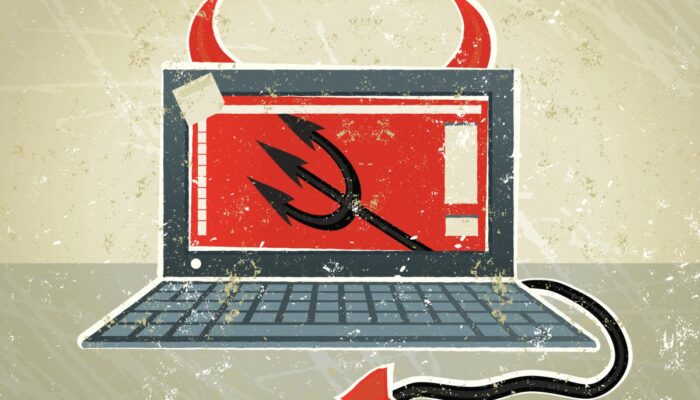In the days following the shooting of right-wing activist Charlie Kirk, there’s been a scramble to understand the politics of the situation.
The effort to ascribe a specific political affiliation and motive to 22-year-old suspect Tyler Robinson—with President Donald Trump and his followers blaming “the radical left”—has led to serious investigation and scrutiny being applied to all the publicly available details of his life before, during, and after his alleged crime. In particular, there’s been an enormous amount of focus on the elaborate internet memes inscribed on the bullet casings authorities say were found at the scene as well as the fact that Robinson was a gamer who was active on Discord.
Unfortunately, the desperation for concrete answers amid a criminal investigation and extremely fraught political climate means people are trying to find deeper meaning in edgy jokes and video game references—often ignoring the possibility that it might not exist. Even commentators presenting themselves as experts on the internet are going down false trails in attempts to connect Robinson to established online movements. It’s understandable to look for meaning in what authorities are calling a political assassination, but it’s also easy to see why we’ve come up short on finding that meaning, when there’s so little mainstream understanding of the “terminally online” culture Robinson’s friends reportedly said he lived in.
In the aftermath of the shooting, critic Kate Wagner wrote on X that “the epicenters of online life are now suburbanized—they are in private Discords, livestreams, and Telegram chats.” The web’s foundational spaces—forums for niche interests, group chats on IRC—were similarly “suburbanized.” They were largely small and impersonal, and existed purely for leisure and fun. These factors meant humor, irony, and deliberate obscurity emerged as the most desirable and popular tone—nothing was too serious, and if you didn’t get what the joke was, you just needed to lurk moar.
Robinson, whose mother once posted a picture of him dressed as “some guy from a meme” for Halloween, is a member of the first generation to never know a world without this type of internet culture, even as the web as a whole has gotten so much larger and more serious. He would have been a tween for the mid-2010s height of “irony poisoning,” where the internet-native impersonal and ironic tone can become so all-encompassing that it becomes hard or impossible to be sincere. Crucially, this coincided with a wave of support for right-wing extremism online, including the birth of the Groypers, an extreme far-right movement organized in the late 2010s by Nick Fuentes, a longtime rival of Kirk’s. Since nothing was truly serious, there was nothing stopping hate speech and inflammatory rhetoric. Anyone with a problem was taking it too seriously.
Based on what we’ve learned so far, Robinson, who has been charged with aggravated murder, does not appear to have been a supporter of right-wing extremism. And he didn’t seem to attach a lot of importance to the memes, one of which said, “If you read this you are gay LMAO.” In charging documents showing an alleged text exchange where Robinson confessed to his roommate, he wrote that he “might have a stroke” if Fox News mentions “Notices bulge UwU,” a reference to a furry-related meme that law enforcement said it found on one of the casings.
“No one person owns a meme, they’re a universal template,” says Matthew Kriner, executive director of the Institute for Countering Digital Extremism. “We do not see a meme itself as an indication of what the ideology behind it is.” This hasn’t stopped people from attempting to use the memes as proof that Robinson was part of a certain political groups. Some completely misunderstood the memes, such as the BBC’s Mike Wendling, who suggested in a post that a gaming reference, which was later attributed to Helldivers 2, might be linked to antifa. Others, like the Telegraph analyzed purported connections between Robinson and the Groypers.
Sadly, Groypers aren’t the only online group that uses the language and practices of memes to advocate and commit acts of political violence. As far-right movements have gained significant political power worldwide, the irony seems to have been replaced by nihilism. The past few years have seen new internet movements like the Com network and 764. These groups, made up largely of isolated underage people, are centered around criminal acts such as committing abusive, violent, and exploitative practices like sextortion in the name of creating the most chaos and fear possible, with no other ideological or political agenda. The FBI has categorized these groups as NVE (nihilistic violent extremism), and they operate in much the same ways, and along the same vectors, as more benign online communities.
“In the 2010s, radicalization was about being the underdog, using grievance culture to shift narratives,” says Jamie Cohen, professor of media studies at Queens College. “Today, the institutions are fully captured by far-right narratives. The culture is shifted, so radicalization is stochastic incidents designed to sow chaos.”
There’s no indication Robinson was a member of any of these NVE groups, though they offer context into how these crimes can often lack any political intent or meaning. “We often research individual perpetrators to understand how memetic elements fit into the larger data and history of their lives,” says Kriner. “[With Robinson] we have little to no public information, so making inferences is challenging, if not impossible, based on what we have in the public eye right now.”
New details have emerged that give some further grounding without anything definitive. Some reports claimed that Robinson was not registered with either political party, but that both his parents were registered Republicans; according to court docs, his mother said he became more invested in “pro-gay and trans rights” in recent months.
In the aforementioned text exchange, Robinson allegedly said “I had enough of his hatred” in reference to Kirk. Independent reporter Ken Klippenstein, meanwhile, investigated a Discord server frequented by Robinson and reported that Robinson virtually never mentioned politics, focusing instead on games like Helldivers 2, which is directly referred to by one of the engraved memes.
Robinson’s Discord server seems to have been a conventionally silly and friendly internet community. The exact kind of space that still exists and flourishes on the internet alongside the more violent and chaotic groups. Similarly, the memes cited by law enforcement that were inscribed on the bullets started out as harmless in-jokes before they were given a new, deadly context last week.
“We often use memes as indicators, as guideposts of where to look deeper,” said Kriner. “They can be a helpful tool, but they can also be a distraction.” And without a clear understanding of the context and culture surrounding these memes, they seem to have been a distraction for most people looking for meaning.




